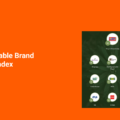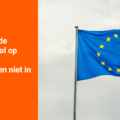
Last week I received the 2023 impact report in my mailbox Wakuli coffee, a report in which the sustainable(more) coffee brand looks back on their year in terms of prices, sustainability and partners. An interesting piece to browse through digitally, I think it is important to know what type of coffee beans I consume.
Also a cosmetics newcomer The Inkey List managed to reach my mailbox with them pledge to sustainability and social conditions. But UNICEF, Sonos, Too Good to Go and the Koffiejongens also send their customers and donors an email with a report on their impact. What does this say about the development of the impact report (other than that I may need to clean out my mailbox)?
The impact report is not a new trend. Almost every company with a social conscience calculates and reports on social factors, sustainability, or on the entire chain. It's the good little brother of the – sec financial - annual report. Logically, because the CSRD directive and the CSDDD legislation are being tinkered with on all sides and all organizations know: we must soon have insight into the entire chain.
Consumers are therefore increasingly receiving a report. Reporting to consumers is not an obligation under the Corporate Sustainability Due Diligence Directive. Is it then a matter of opportunistic profiling with the thought: “While we're at it, we might as well turn it into a newsletter”?
From society we see that the call for sustainable consumption is becoming louder and louder. Consumers are increasingly speaking out, and experts are also calling for focus corporate purpose. Credibility and transparency are therefore a must.
We see this trend developing further, and we suspect that we will receive impact reports in the mail even more often, whether credible or not. The risk is that everyone will become impact-tired of the mailbox. So keep inspiring with your results.



